BCHET-149 Molecules of Life in English Solved Assignment 2021-2022
₹40.00Current price is: ₹40.00. Original price was: ₹50.00.
BCHET-149 Molecules of Life
ASSIGNMENT
Molecules of Life
Elective Course in Chemistry
Course Code: BCHET-149
Assignment Code: BCHET-149/TMA/2021-2022
Maximum Marks: 100
Add to cart
Buy Now
BCHET-149 Molecules of Life
Solved Assignment 2021-2022
ASSIGNMENT
Molecules of Life
Elective Course in Chemistry
Course Code: BCHET-149
Assignment Code: BCHET-149/TMA/2021-2022
Maximum Marks: 100
| Title Name | BCHET-149 Solved Assignment 2021-2022 |
| University | IGNOU |
| Service Type | Solved Assignment (Soft copy/PDF) |
| Course | BSCG |
| Language | ENGLISH |
| Semester | 2021-2022 Course: B.SC(G) CBCS |
| Session | Valid from 1st January, 2022 to 31st December, 2022 |
| Short Name | BCHET-149 |
| Assignment Code | BCHET-149/TMA/2021-2022 |
| Product | Assignment of BSCG 2021-2022 (IGNOU) |
| Submission Date | This assignment is valid from 1st January 2022 to 31st December, 2022 |
| Price | RS. 80 |
Note: Attempt all questions. The marks for each question are indicated against it.
PART-A
1. a) List the important cell organelles of a typical eukaryotic cell. Describe the structure and
function of any two organelles from this list.
(5)
b) Describe in brief the structure of disaccharides? How is maltose different from
sucrose?
(5)
2. a) What are the blood group substances? How do they chemically differ from each other? (5)
b) What are lipoproteins? What is their functional role? (5)
3. a) List the important functions of biomembranes. (5)
b) What are the main steps involved in transcription? Briefly describe the process of
transcription in a cell.
(5)
4. a) Write the structures of tyrosine and tryptophan. Which group are they categorised
into and why?
(5)
b) Describe the steps involved in the synthesis of a polypeptide. (5)
5. a) Name the types of interactions involved in the primary and higher order structures of
protein. How is the primary structure of proteins different from the structural formula of
organic compounds?
(5)
b) Differentiate between the following pairs.
i) Cofactor and Coenzyme
ii) Apoenzyme and Holoenzyme
(5)
PART-B
6. a) Explain the mechanism involved in the enzyme catalysis of biochemical reactions. (5)
b) Define the following:
i) Entropy
ii) Free energy
iii) Metabolism
iv) Metabolites
(5)
7. a) Explain with the help of examples what is meant by convergent and divergent nature of
metabolism.
(5)
4
b) Describe in brief the first ATP – generating step of glycolysis. (5)
8. a) Name the enzyme involved in the conversion of pyruvate to acetyl–CoA. Explain
how it is different from the other enzymes.
(5)
b) Which metabolic processes the following reactions belong to? What is the similarity
between the two?
i) Pyruvate Oxaloacetate
ii) Acetyl–SCoA Malonyl-CoA
(5)
9. a) Taking a suitable example explain the inhibition of protein biosynthesis by antibiotics in
prokaryotes.
(5)
b) How is polypeptide chain elongated during protein biosynthesis? Describe the process. (5)
10. a) Name the different RNAs found in the cell and explain the structure of any one of these. (5)
b) What are the similarities and differences between RNA replication and RNA
transcription? Explain.
BCHET-149, BCHET 149, BCHET149





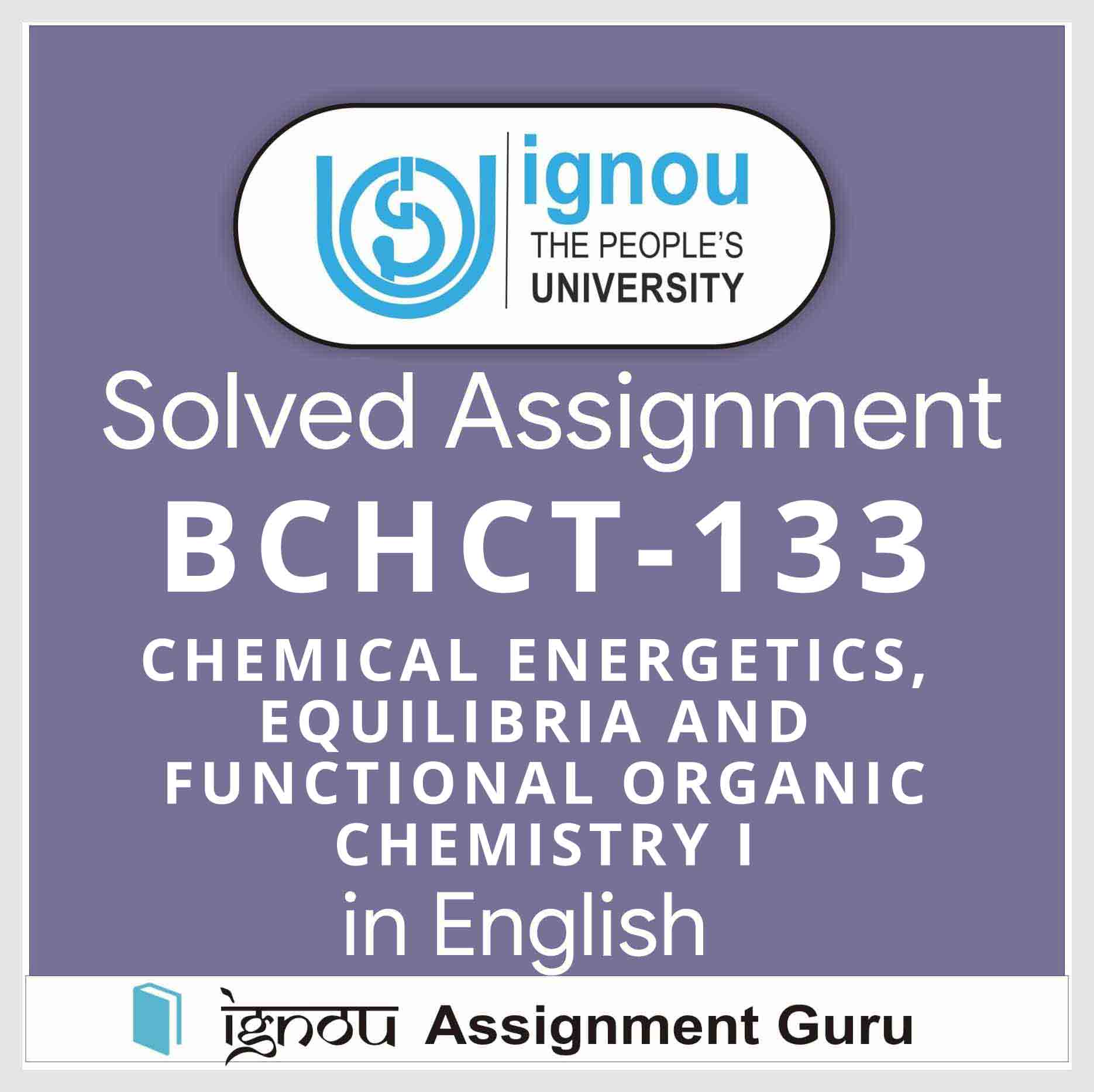

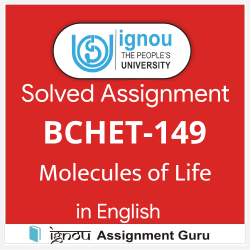
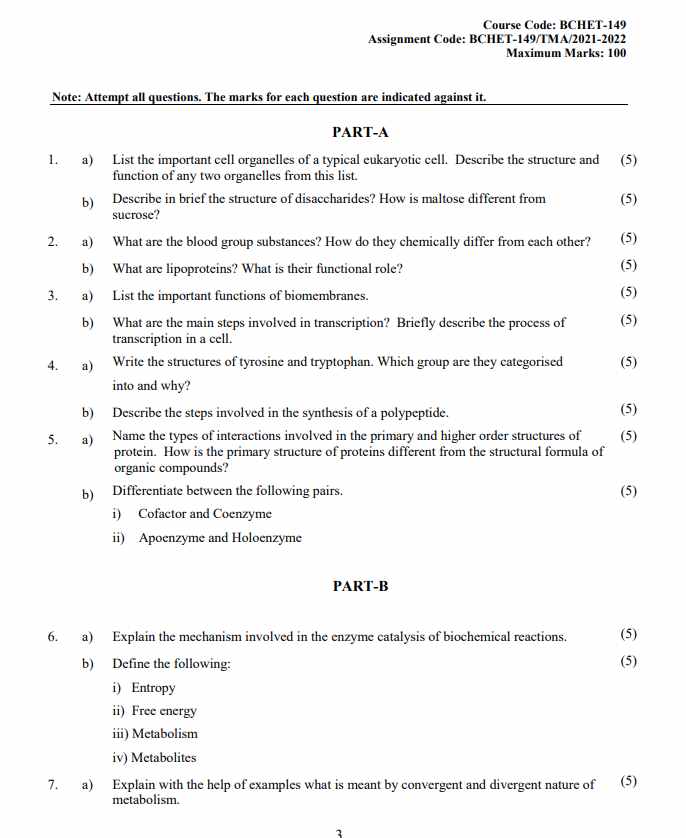
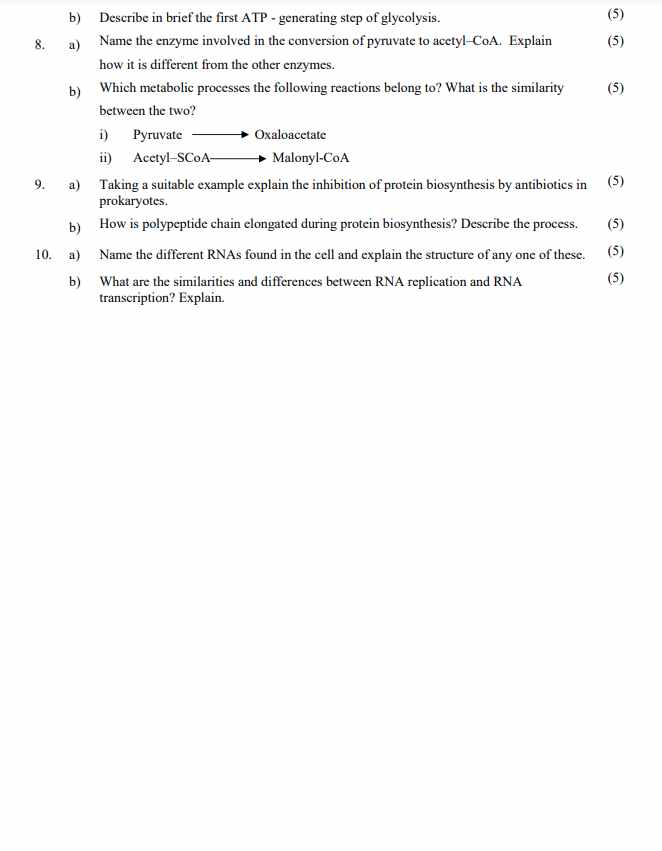

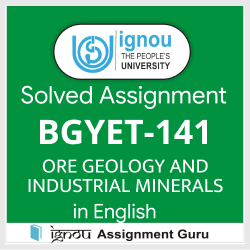
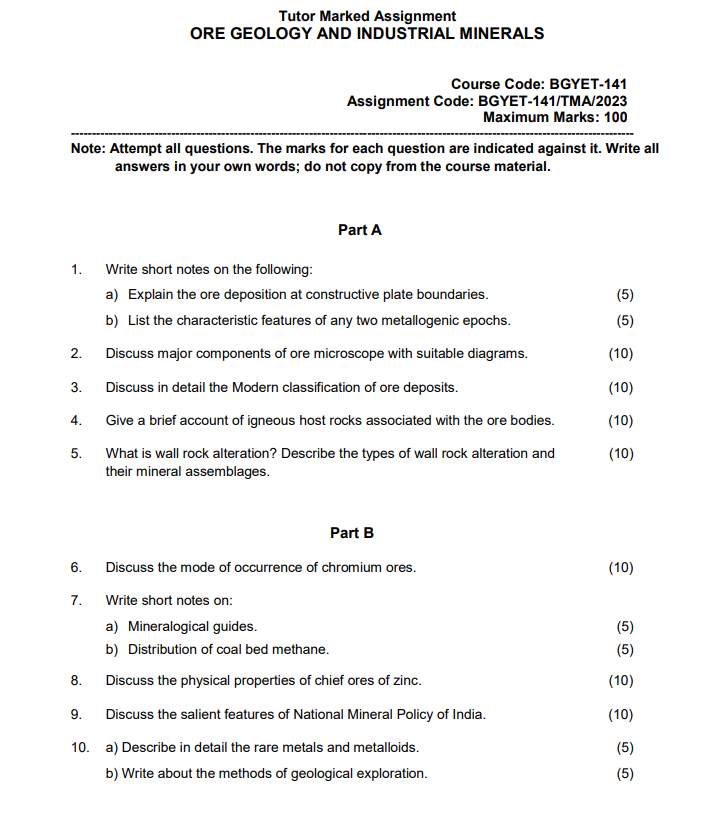

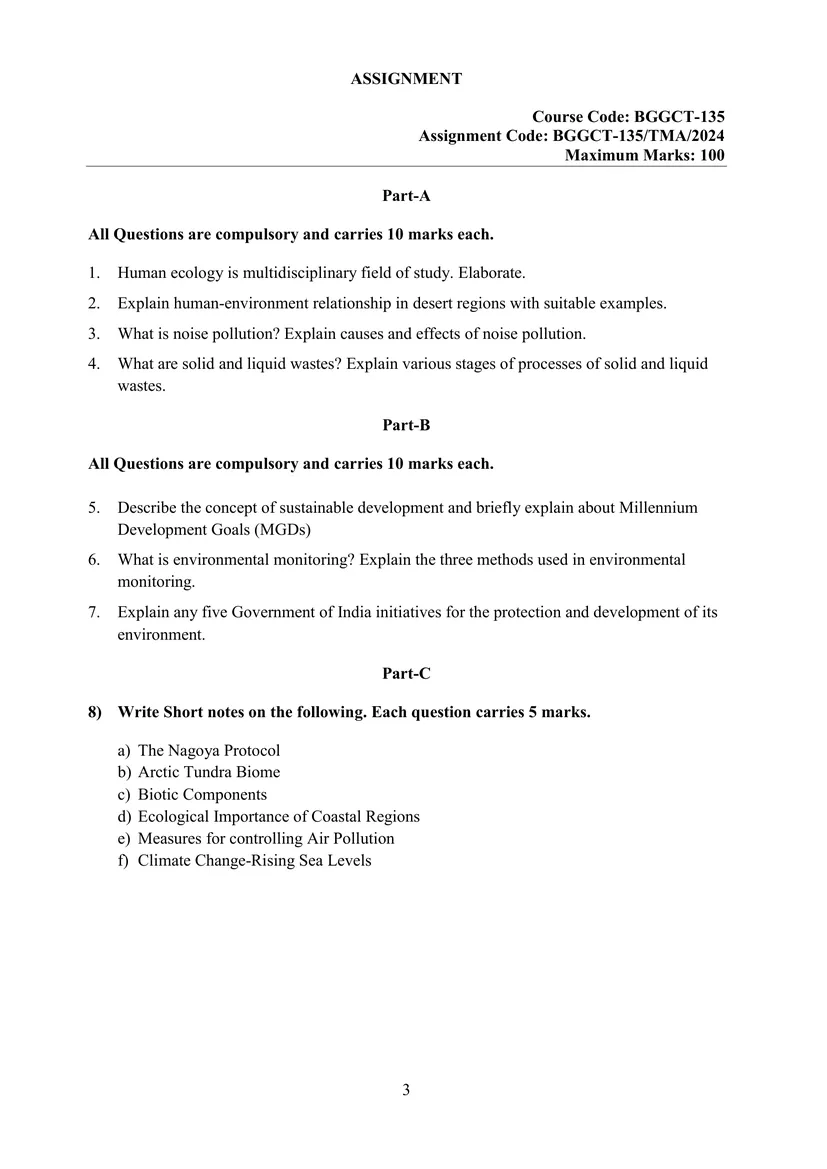

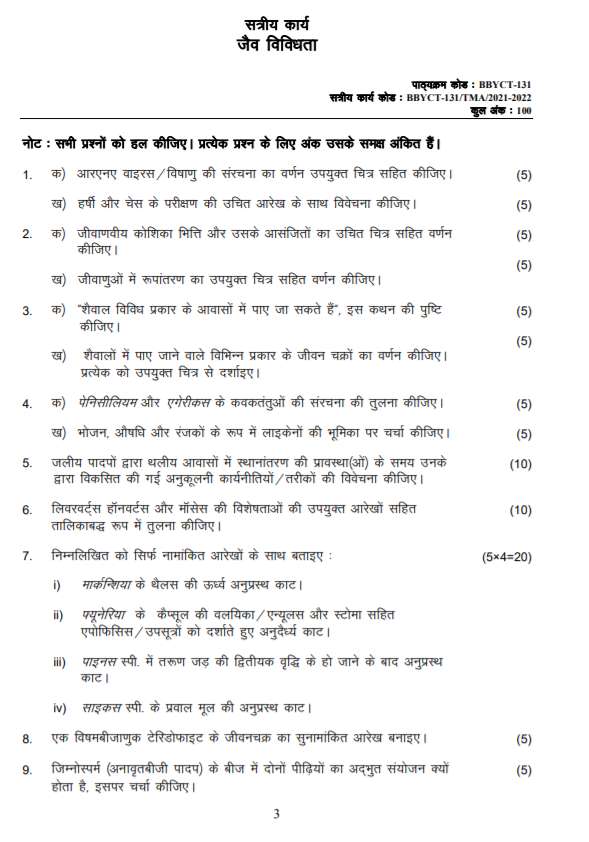

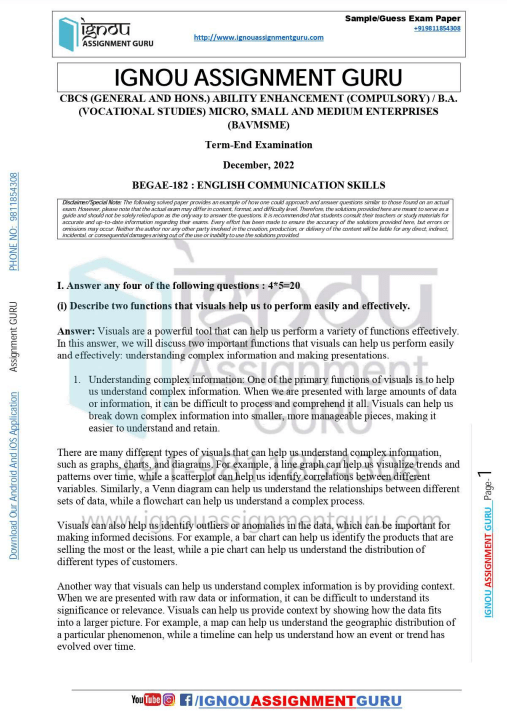
Reviews
There are no reviews yet.